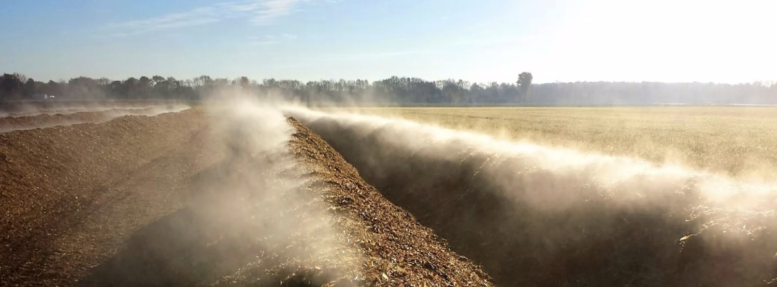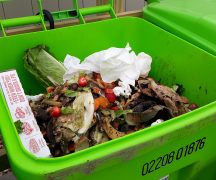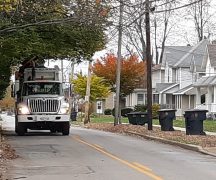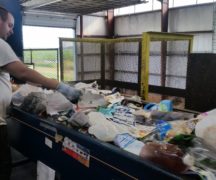By JULIE CARLE
BG Independent News
For 100 years, Hirzel Farms has been growing and canning cabbages for sauerkraut and tomatoes. While the company is known for the Dei Fratelli brand, their name is also known for a longtime commitment to organic farming practices.
Bridget Burgess of Hirzel Farms talked at CIFT’s June Agricultural Forum about the company’s work in organic and non-GMO crop production, organic composting, food-grade cleaning and cover cropping alternatives. With more than 1,500 acres of certified organic fields and 160 acres set aside for composting, Hirzel Farms’ mission continues to be steeped in stewardship of the land.
The pioneering philosophies of John E. Hirzel, who was president of the company from 1970 until his death in 2000, set the stage for the commitment to sustainable and organic agricultural practices. The company’s parallel production of non-GMO and organic crops has been operating for over 50 years though official organic certification didn’t begin until the 1990s, Burgess said.
The certified organic side of the farm operation uses at least a four-year rotation of crops including corn, sunflowers, food-grade soybeans for oil, tofu or edamame, and small grains that are underseeded with clover in March.
“In organic farming, because we don’t use any fertilizers, pesticides or herbicides, the cover crops are vital for weed suppression and providing nutrients,” Burgess explained.
The company also cleans their crops and other local growers’ crops to assure they are food-grade quality. “This provides another avenue to market crops if they are clean from weed seed and other impurities,” she explained.
The compost facility, which started in 1992, is also certified organic. “The canning facilities needed somewhere to go with their cabbage and tomato waste. John being the steward he was, it was important for him to look at ways to deal with the waste in the environment,” Burgess said. “Being organic you need to find ways to take care of your ground.”
Composting occurs naturally, but at the Hirzel composting facility, they accelerate the process by consistently turning, mixing and managing the carbon-nitrogen ratio.
As a Class 2 composting facility, they can take in manure, food waste and yard waste to provide carbon and nitrogen which are essential components for successful composting. Hirzel’s is particular about the materials they accept to make sure there are no residual pesticides or fertilizers or plastics or other trash. They are licensed to accept up to 100 tons of food waste a day, but currently average between 60 to 70 tons a day.
The tomato and cabbage wastes from the Hirzel canneries is one source for food wastes. In 2022, the compost facility received 3,100 tons of tomato waste and 1,500 tons of cabbage/sauerkraut waste from the Hirzel canneries.
The Hartung cucumber plant in Bowling Green, Bowling Green State University’s two dining halls food prep wastes, and cabbage waste from a Fremont company are among the local providers of food waste to the Hirzel compost facility, she said.
They also get manure and sawdust from local livestock producers and horse farms for the carbon component, as well as leaves from some of the small towns in the Pemberville-Luckey area.
A total of about 12,000 tons of waste are diverted from the landfill, Burgess said, which is one of the main benefits of composting. The use of compost also increases organic matter in the soil, and helps with disease prevention and pest control.
The majority of the compost that is created, or 6,400 tons, is used on Hirzel Farms fields. Approximately 3,300 tons go to other growers in the area, while 300 tons are sold in bulk or bags at 14 different local greenhouses and nurseries, and 190 tons are used in landscaping such as for ballfields and university campuses. Hirzel Farms also helps community gardens by donating compost or delivery “to help them get their gardens further along,” Burgess said.
She encouraged conventional farmers who are considering moving into organic farming to talk to farmers already in the business and to attend workshops and field days to learn more before moving forward.
“If you are trying to make three times more money with organic rather than conventional farming, forget it. You’d think there would be a ton of markets around here to make the demand,” she said.
If the reason for trying organic is to cut back on inputs or to get back to the land, then first talk to others and start small, she added.




